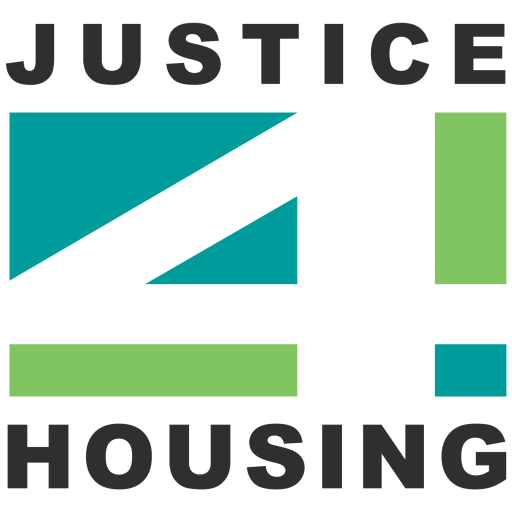
Pressley, Tlaib Unveil Bill To Increase Housing Access For People With Criminal Records
WASHINGTON – Today, Congresswoman Ayanna Pressley (MA-07) and Congresswoman Rashida Tlaib (MI-12) unveiled the Housing for Formerly Incarcerated Reentry and Stable Tenancy (Housing FIRST) Act, bold legislation to help people who are formerly incarcerated and those with criminal histories access safe and stable housing. The bill would help disrupt the prison-to-homelessness pipeline by removing unjust barriers to housing and limit tenant screening criteria for criminal records in background checks.
The Housing FIRST Act is informed by Rep. Pressley’s People’s Justice Guarantee, her bold vision for transforming the American criminal legal system into one that centers the dignity and humanity of all people.
“Safe, stable and affordable housing is a fundamental human right, including for the millions of people with a record,” said Rep. Pressley. “It’s time we remove the systemic obstacles that have exacerbated the prison-to-homelessness pipeline, perpetuated the cycle of mass incarceration, and denied housing to people who need it. Our bill does just that and will move us closer to true housing justice in America. I’m grateful to Congresswoman Tlaib and our advocates for their partnership on this critical legislation.”
“From Detroit to Boston, every human being deserves access to safe, affordable housing, including people who were formerly incarcerated,” said Rep. Tlaib. “We must prioritize restorative justice, lead with compassion, and recognize the human dignity of our neighbors as we work to dismantle the cycles of mass incarceration and housing discrimination. This legislation will end the systemic barriers to stable housing returning citizens face every day as they begin to rebuild their lives in our communities.”
Congresswoman Pressley discussed the bill in a House Financial Services Committee hearing today.
Systemic discrimination against people with criminal records in tenant screening is a persistent barrier to housing access, economic stability, and public safety, and contributes to the prison-to-homelessness pipeline. Landlords’ refusal to rent to individuals with a criminal record impacts more than 70 million people in the United States—nearly 1 in 3 adults—with Black and brown folks having the highest rates of housing denials due to disparate treatment by the criminal legal system. Additionally, people who are formerly incarcerated are almost 10 times more likely to be homeless than the general public.
The Housing FIRST Act would address these systemic barriers by:
- Prohibiting a consumer reporting agency from furnishing a consumer report, for tenant screening purposes, that includes information related to an individual’s criminal background;
- Requiring consumer reporting agencies to disclose to the consumer, upon request, any person from whom the consumer reporting agency received information pertaining to a consumer’s file;
- Requiring a person who denies rental housing to or takes adverse action against a consumer to provide to the consumer the specific reasons for the denial or adverse action;
- Creating national standard for criminal record information excluded from consumer reports;
- Excluding records of convictions of crimes older than seven years from consumer reports for tenant screening purposes; and
- Codifying existing judicial interpretations that a consumer reporting agency must disclose the identities of people or vendors who gathered information on their behalf.
The Housing FIRST Act is cosponsored by Barbara Lee (CA-12), Alexandria Ocasio-Cortez (NY-14), Jan Schakowsky (IL-09), Eleanor Holmes Norton (DC-DE), Jimmy Gomez (CA-34), James P. McGovern (MA-02), Maxwell Alejandro Frost (FL-10), Jamaal Bowman (NY-16), Yvette Clarke (NY-09), Greg Casar (TX-35), Hank Johnson (GA-04), Ilhan Omar (MN-05), Cori Bush (MO-01), and Summer Lee (PA-12).
The legislation is supported by: Justice 4 Housing, Vera Institute, National Consumer Law Center, National Housing Law Project, Center for Popular Democracy, Prison Policy Initiative, The Council for Incarcerated and Formerly Incarcerated Women and Girls, National Low-Income Housing Coalition.
“As Justice 4 Housing’s Founder & Executive Director, I am proud to endorse Congresswoman Pressley’s Housing FIRST Act,” said Leslie Credle, Justice 4 Housing. “The legislation will address several key barriers that make it almost impossible for Formerly Incarcerated People to attain safe and affordable housing. As a survivor of incarceration, I recognize that this legislation will address the barriers that prevent survivors of incarceration from possessing the same privileges as other US citizens, without impunity.”
“Reforms to tenant screening policies and practices are needed to ensure everyone has a stable, accessible, and affordable home,” said Diane Yentel, President and CEO of the National Low Income Housing Coalition. “Too often, renters – and particularly renters of color – are unable to obtain housing because of incomplete, misleading, or incorrect information on their tenant screening reports. By bringing the tenant screening industry under compliance with the Fair Credit Reporting Act and limiting the type of information that can be included in reports, the ‘Housing FIRST Act’ would be a vital tool to help increase housing stability and access for millions of people.”
“The Center for Popular Democracy is proud to endorse the Housing FIRST Act to remove barriers for all to access housing,” said Katie Goldstein, the Director of Housing and Healthcare Campaigns.
“The National Housing Law Project is pleased to endorse Representative Pressley’s Housing FIRST Act. This bill would increase access and opportunity for prospective tenants who have been locked out of the housing market. To date, tenant screening practices have furthered racial, socioeconomic, and other systemic discriminatory segregation in the U.S. rental market. Representative Pressley’s bill would hold landlords and screening companies accountable for the information they use to assess applicants, the transparency of their practices, and the barriers they perpetuate that have punished poor tenants for far too long,” said Shamus Roller, Executive Director, National Housing Law Project.
A summary of the bill is available via the link below.
In April 2023, Rep. Pressley joined Justice 4 Housing, New England Culinary Arts Training, and housing advocates to tour their cutting-edge coworking space and discuss the organizations’ transformative work in support of Formerly Incarcerated People. Photos from the visit are available here.
As a Member of the Subcommittee on Housing and Insurance of the House Financial Services Committee (FSC), Rep. Pressley has consistently advocated for policies that affirm housing as a human right and center the dignity and humanity of all people, including individuals who are formerly incarcerated.
- In May 2023, Rep. Pressley and FSC Ranking Member Maxine Waters (D-CA) sent a letter to the U.S. Department of Housing and Urban Development, urging the agency to put an end to the use of biometric technology, such as facial recognition, in federally assisted housing for the purposes of surveilling residents.
- In March 2023, Rep. Pressley and her colleagues re-introduced the Facial Recognition and Biometric Technology Moratorium Act to stop federal entities’ use of facial recognition tools and prohibit federal support for state and local law enforcement entities that use biometric technology.
- In February 2022, Rep. Pressley, along with Chairwoman Rosa DeLauro (CT-03) and Congresswoman Cori Bush (MO-01), in reintroducing the Housing Emergencies Lifeline Program (HELP) Act, critical legislation to provide much-needed assistance to those facing eviction amid the ongoing COVID-19 pandemic.
- In December 2021, Rep. Pressley unveiled the Fair and Independent Experts in Clemency (FIX Clemency) Act, historic legislation to transform our nation’s clemency system and address the mass incarceration crisis. This legislation is informed by the Congresswoman’s People Justice Guarantee (PJG), a comprehensive, decarceration-focused resolution that outlines a framework for a fair, equitable and just legal system.
- In September 2021, Rep. Pressley joined Rep. Bush and Senator Elizabeth Warren (D-MA) in introducing the Keeping Renters Safe Act of 2021 to enact an urgently needed nationwide eviction moratorium.
- Over the summer, with the previous eviction moratorium set to expire, Rep. Pressley stood in solidarity with Congresswoman Cori Bush on the steps of the US Capitol to urge the Administration to act unilaterally to extend this protection—efforts that resulted in a new CDC eviction moratorium.
- On July 2021, ahead of the expiration of the previous CDC eviction moratorium, Reps. Pressley, Bush, Gomez and their progressive colleagues sent a letter renewing their calls for President Biden and CDC Director Rochelle Walensky to extend the federal eviction moratorium and prevent the historic and deadly wave of evictions that would occur if the government failed to do so.
- On July 30, 2021, Rep. Pressley joined House Financial Services Committee Chairwoman Maxine Waters (D-CA) in introducing the Protecting Renters from Evictions Act of 2021, legislation to extend the eviction moratorium through the end of the year.
- In June 2021, Rep. Pressley, along with Reps. Gomez and Bush, led over 40 of their colleagues on a letter urging President Biden and CDC Director Walensky to extend and strengthen the moratorium for the duration of the public health crisis.
- In June 2021, Congresswoman Pressley, along with Rep. Ilhan Omar (D-MN), re-introduced the Rent and Mortgage Cancellation Act, a bill to institute a nationwide cancellation of rents and home mortgage payments through the duration of the coronavirus pandemic.
- On May 18, 2021, Reps. Bush and Pressley sent a letter to the Director of the Centers for Disease Control and Prevention (CDC), calling on the CDC to strengthen and extend the federal moratorium on evictions, ensuring families can remain safely in their homes for the duration of the COVID-19 global health emergency.
- On July 28, 2020, Rep. Pressley, Rep. DeLauro and Sen. Harris introduced the Housing Emergencies Lifeline Program (HELP) Act to provide much-needed, layered assistance to those facing eviction amid the COVID-19 pandemic.
- On July 24, 2020, in a Financial Services Committee hearing, Rep. Pressley discussed the unprecedented financial cliff facing millions of renters and homeowners, the economic consequences of millions losing their homes, including the ability to return to work, and why funding for legal representation is so critical.
- On May 11, 2020, Reps. Tlaib, and Joe Neguse (D-CO) urge House and Senate leadership to include $11.5 billion in funding for Emergency Solutions Grants (ESG) in the next relief package to aid the nation’s homeless population who are experiencing heightened vulnerability during the COVID-19 pandemic.
- On April 10, 2020, Rep. Pressley urged Congressional leadership to prioritize recurring monthly cash payments to those most at-risk during the COVID-19 crisis. This funding would allow people to cover all their bills, including rent.
- On April 17, 2020, Reps. Pressley, Ilhan Omar (D-MN) and colleagues introduce the Rent and Mortgage Cancellation Act, a bill to institute a nationwide cancellation of rents and home mortgage payments through the duration of the coronavirus pandemic.
- On March 23, 2020, Reps. Pressley and Rashida Tlaib (D-MI) introduced the Public Health Emergency Shelter Act of 2020, legislation to provide critical funding to states and local governments responding to the needs of families and individuals experiencing homelessness during the COVID-19 crisis. This legislation was included and passed through the HEROES Act and H.R. 7301, the Emergency Housing Protections and Relief Act of 2020.
- On March 19, 2020, Rep. Pressley, along with progressive lawmakers and organizations, introduced the Housing is a Human Right Act to authorize more than $200 billion in federal spending over 10 years for crucial housing infrastructure and reduce homelessness.
- On March 18, 2020, Reps. Pressley, Katie Porter (D-CA) and Sens. Elizabeth Warren (D-MA), Bernie Sanders (I-VT) and Jeff Merkley (D-OR) wrote to HUD calling for a moratorium on evicting renters during the coronavirus pandemic.
- In July 2019, Rep. Pressley announced legislation that would prohibit the use of biometric recognition technology in most public and assisted housing units funded by the Department of Housing and Urban Development (HUD), protecting tenants from biased surveillance technology.
